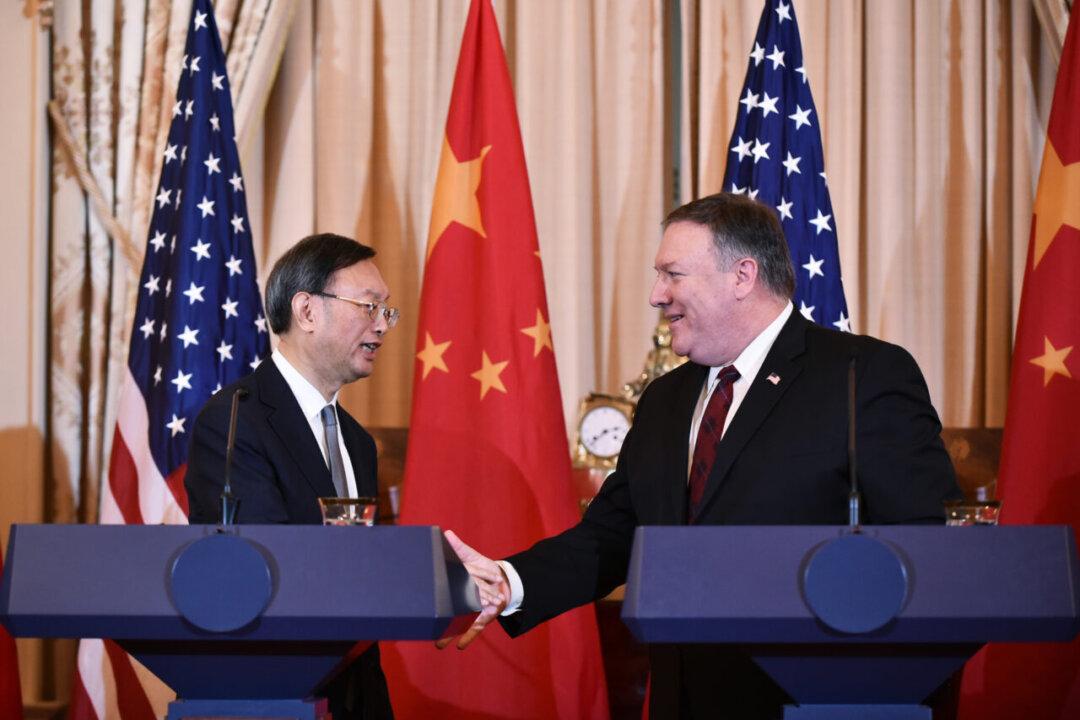U.S. Secretary of State Mike Pompeo traveled to Honolulu, Hawaii on Tuesday to meet a Chinese delegation at a U.S. military base in Hawaii this week to discuss the bilateral relationship, sources familiar with the matter said, according to Reuters.
The Chinese delegation will be led by Yang Jiechi, a former foreign minister and ambassador to the United States, according to “a source familiar with the arrangements,” reported South China Morning Post.





